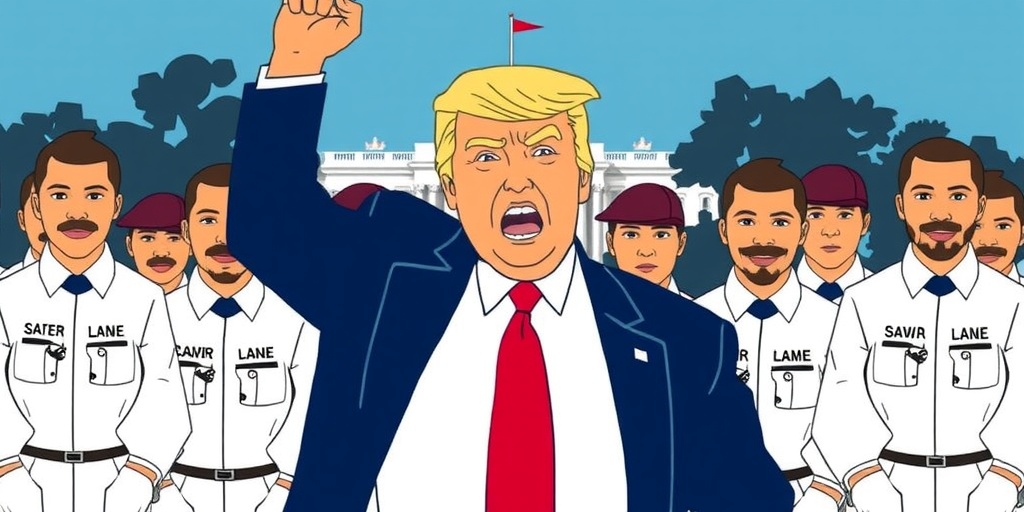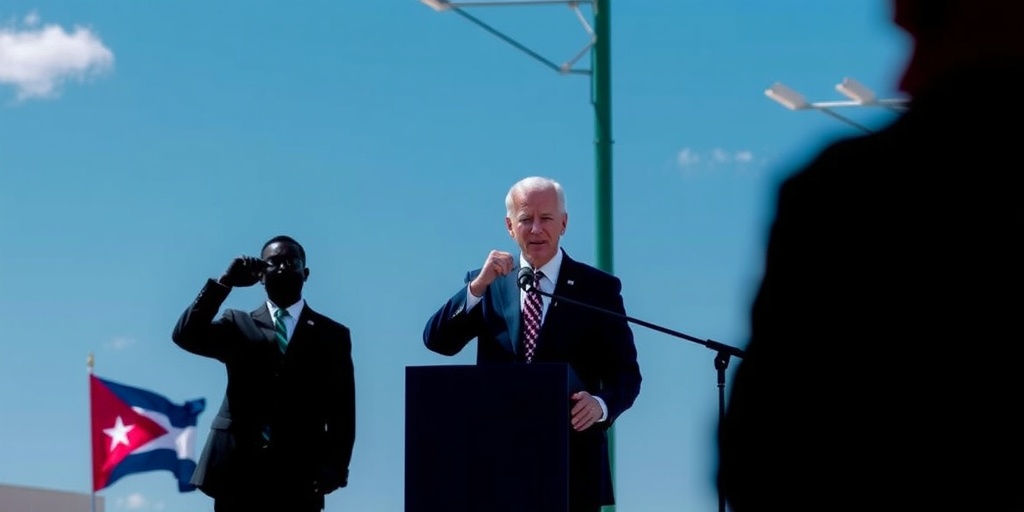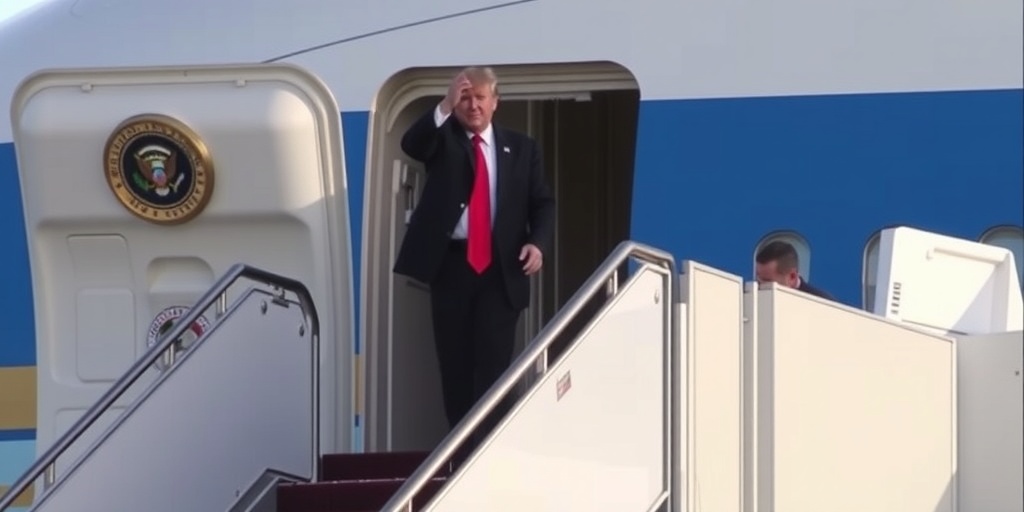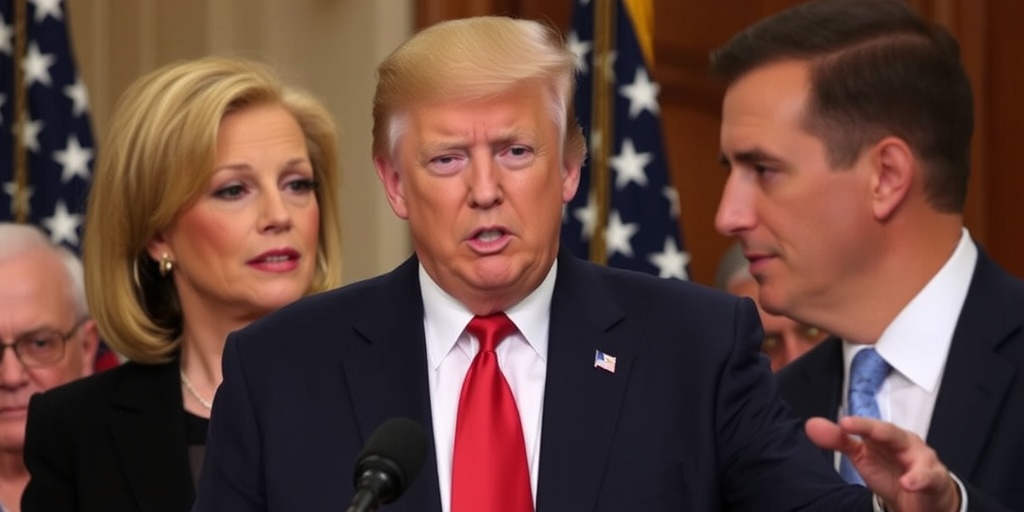Now Reading: Cleveland-Cliffs Indicates Potential New Bid for U.S. Steel
-
01
Cleveland-Cliffs Indicates Potential New Bid for U.S. Steel
Cleveland-Cliffs Indicates Potential New Bid for U.S. Steel

Cleveland-Cliffs Eyes New Takeover Bid for U.S. Steel Amid Ongoing Legal Turmoil
On Monday, potential fallout over the future of U.S. Steel surfaced as Cleveland-Cliffs, an American steel competitor, signaled its intentions to pursue a takeover of the iconic, albeit struggling steelmaker. This renewed interest comes on the heels of President Biden’s recent decision to block a $14 billion acquisition attempt by Japan’s Nippon Steel, a move that cited national security concerns.
Lourenco Goncalves, the CEO of Cleveland-Cliffs, stated that the acquisition of U.S. Steel represents "an All-American solution to save the United States Steel Corporation." He emphasized that the question is not whether Cleveland-Cliffs will acquire U.S. Steel, but rather when this acquisition might occur. However, he refrained from providing specific details regarding a formal bidding strategy.
Cleveland-Cliffs’ announcement comes just weeks after President Biden intervened to block the Nippon Steel deal, prompting significant scrutiny of U.S. Steel’s strategic direction. Despite a previous attempt by Cleveland-Cliffs to purchase U.S. Steel last year—a proposal that was ultimately rejected in favor of Nippon Steel’s higher bid—the company is now attempting to reposition itself as the more desirable buyer.
Reports surfaced from CNBC indicating that Cleveland-Cliffs may plan to acquire U.S. Steel and subsequently divest its subsidiary, Big River Steel, to Nucor, another major American steel producer. However, during a subsequent press conference, Goncalves did not confirm whether Cleveland-Cliffs would collaborate with Nucor on this endeavor.
In the wake of these developments, U.S. Steel and Nucor did not return requests for comment, indicating a possible reluctance to engage in public discourse during this tumultuous period. Investor reactions to the prospective Cleveland-Cliffs bid have been markedly positive, with shares of U.S. Steel seeing an increase of up to 10 percent upon the news breaking—although they remain down 22 percent over the past year, including this recent rise.
Meanwhile, the fate of the Nippon Steel acquisition proposal remains uncertain as U.S. Steel and Nippon have initiated a lawsuit against the United States government in a bid to resuscitate their merger agreement. They allege that President Biden and senior administration officials compromised the review process for political reasons and blocked the deal under pretextual claims of national security.
Not only is the ongoing conflict with the U.S. government at play, but the companies have also filed a separate lawsuit against Cleveland-Cliffs and David McCall, the International President of the United Steelworkers union. Their argument pertains to claims of illegal collusion aimed at undermining the Nippon deal. Those accused have dismissed these allegations as "baseless," demonstrating the fraught environment surrounding the negotiations.
According to recent statements from U.S. Steel and Nippon, the Biden administration has postponed its enforcement of the executive order blocking the Nippon takeover until June, granting courts time to review the pending lawsuit. Goncalves pointed out during a recent press conference that progress on alternative deals, including a potential Cleveland-Cliffs acquisition, hinges on U.S. Steel’s leadership recognizing and abandoning its current merger agreement with Nippon Steel.
The contentious backdrop raises questions about how U.S. Steel’s board of directors will respond to the renewed interest from Cleveland-Cliffs. Should the existing management remain uninterested, Cleveland-Cliffs may consider presenting its offer directly to U.S. Steel shareholders, signaling a possible route to bypass management resistance.
Once the preeminent steel manufacturer globally, U.S. Steel has seen its stature wane in recent years. The company’s long-term prospects have come under fire, driven largely by its slow response to embracing more energy-efficient and cost-effective steel production methods. U.S. Steel, in its defense against the Nippon deal, argues that Japan’s largest steel manufacturer could make significant investments across numerous steel mills, a necessity to safeguard jobs.
The United Steelworkers union, representing around 11,000 employees at U.S. Steel, has shown strong opposition to the Nippon merger, citing illegal trade practices and bad faith dealings. Interestingly, the union has previously expressed a preference for a merger with Cleveland-Cliffs, reinforcing the domestic option’s appeal.
Another dimension to the potential takeover bid involves the looming specter of antitrust scrutiny. Any move by Cleveland-Cliffs to purchase U.S. Steel could face considerable examination from federal regulators, particularly given the heightened scrutiny observed under the Biden administration. Yet, it remains uncertain whether regulators might adopt a more lenient approach, especially as shifts in leadership could alter enforcement dynamics.
While Cleveland-Cliffs presents itself as a viable alternative for U.S. Steel’s future, the corporate landscape remains fraught with legal entanglements and uncertainty. The resolution of ongoing lawsuits and the decisions made by U.S. Steel’s current leadership will significantly shape the next chapter for the storied steelmaker. As stakeholders monitor these developments closely, the coming months promise to be pivotal.
Stay Informed With the Latest & Most Important News
Previous Post
Next Post
-
 01New technology breakthrough has everyone talking right now
01New technology breakthrough has everyone talking right now -
 02Unbelievable life hack everyone needs to try today
02Unbelievable life hack everyone needs to try today -
 03Fascinating discovery found buried deep beneath the ocean
03Fascinating discovery found buried deep beneath the ocean -
 04Man invents genius device that solves everyday problems
04Man invents genius device that solves everyday problems -
 05Shocking discovery that changes what we know forever
05Shocking discovery that changes what we know forever -
 06Internet goes wild over celebrity’s unexpected fashion choice
06Internet goes wild over celebrity’s unexpected fashion choice -
 07Rare animal sighting stuns scientists and wildlife lovers
07Rare animal sighting stuns scientists and wildlife lovers





















